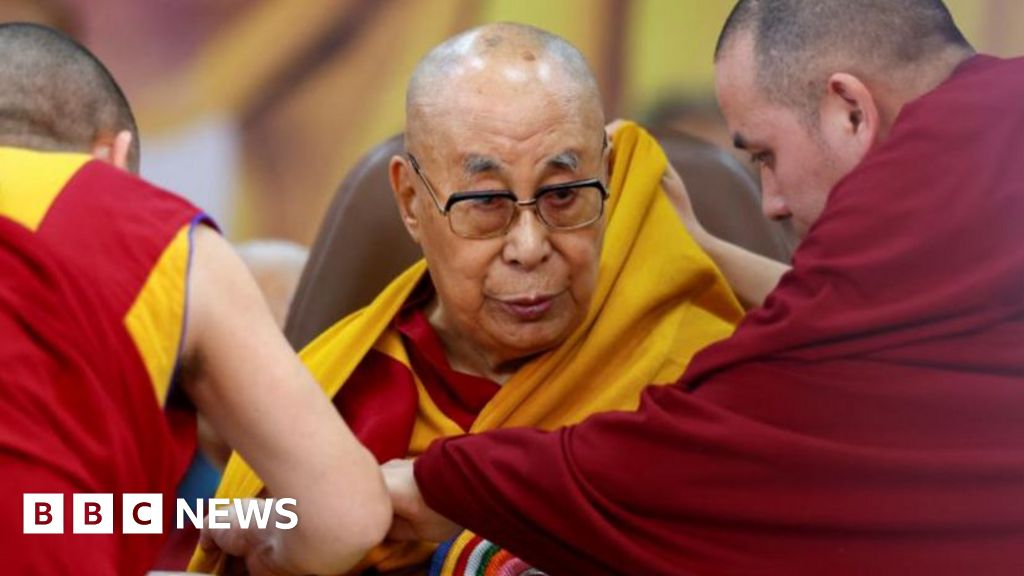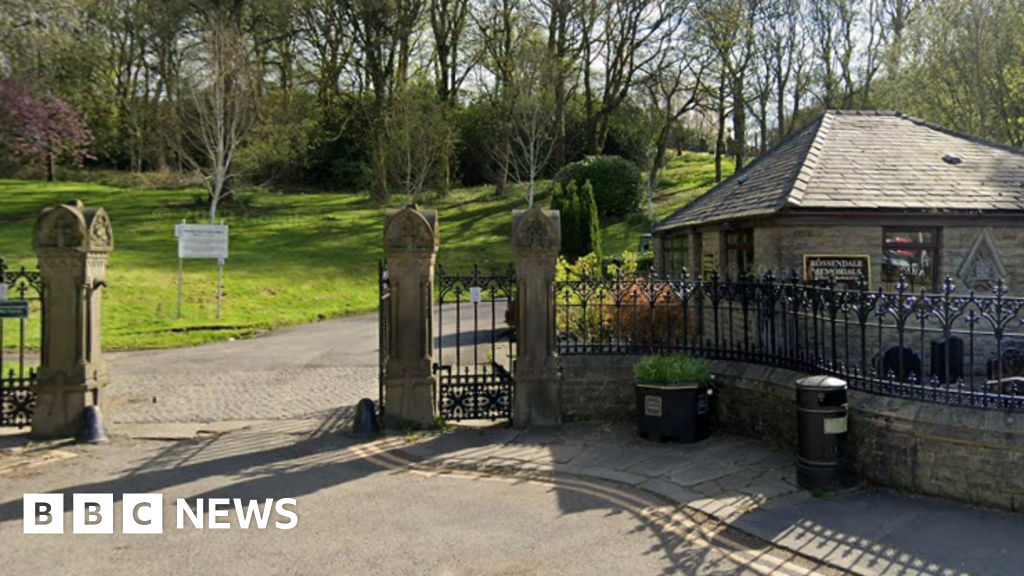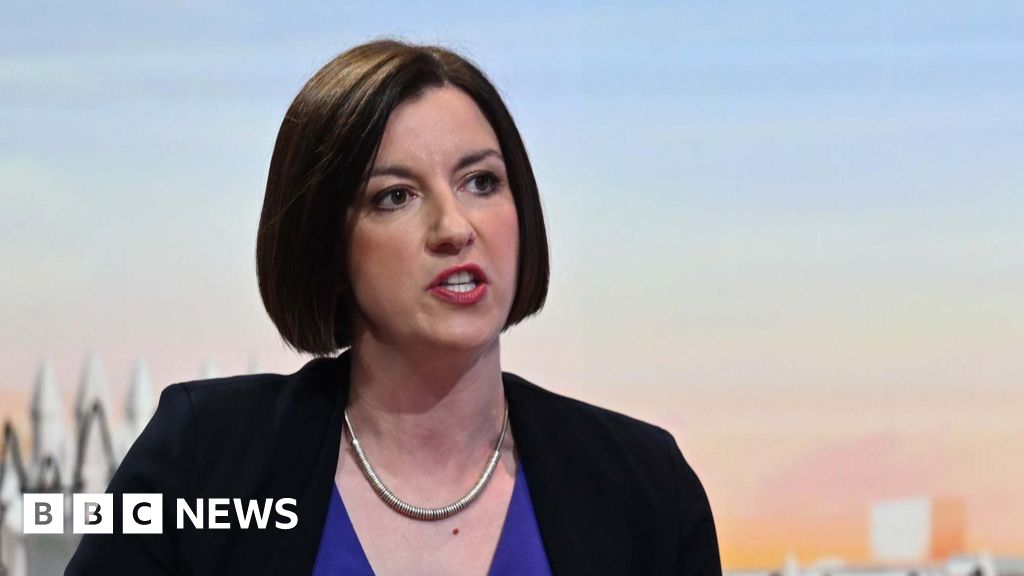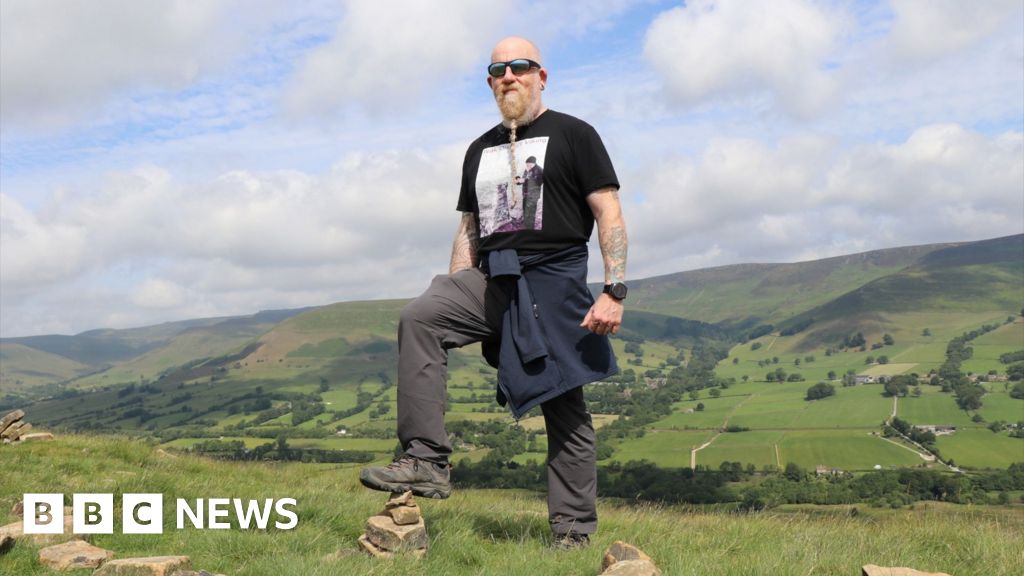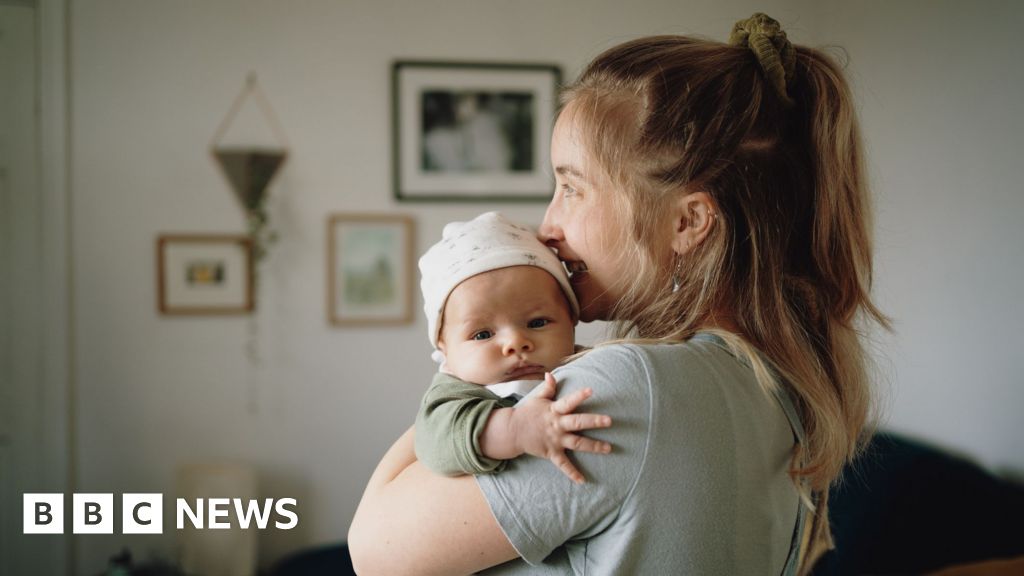 Grace Pickett
Grace PickettGrace is still struggling to find a summer job without previous paid work experience
Grace Pickett has been applying for part-time jobs for two years now - with no luck.
The 18-year-old from Corby is hoping to head to Liverpool John Moores University to study history in September, and now her A-levels are over, she's ramped up her job hunt.
But she's found herself facing the same issue many other young people across the UK say makes it hard for them to get their first part-time or summer job - not having enough previous experience.
"It is very frustrating," says Grace, who has been told by several companies they cannot hire her due to a lack of prior work experience.
Lauren Mistry, from charity Youth Employment UK, which helps young people find jobs, says it's "a vicious cycle".
"To have experience, you need experience."
Grace volunteered at a charity shop for six months and says she doesn't understand why some employers don't think this is enough. She's been dropping off her CV in pubs, emailing potential employers, and filling in applications on job site Indeed - but hasn't found anything yet.
Some of Grace's friends have "given up" on their job hunts because they don't think they'll ever find anything, she says. She's not reached that stage yet, but she's started to feel pessimistic about whether she'll find a job before the summer ends.
Oliver Holton, a 17-year-old college student in Retford, is also struggling to find a summer job, despite nearly four years' experience doing a paper round. Many employers in the retail and hospitality sectors want him to have more specific experience, he says.
Summer jobs are more competitive than they were 20 years ago because online applications mean there are generally more candidates for each job, says Chris Eccles, from jobs site Employment 4 Students. Increases in the minimum wage and National Insurance have also affected hiring, according to Lauren Mistry.
 Oliver Holton
Oliver HoltonOliver is trying to find a summer job, but it's not easy
As well as earning money, working part-time while at school, college or university, or during holidays can also help boost your CV when the time comes to apply to full-time jobs.
But figures from the Office for National Statistics show fewer young people have jobs while studying than 30 years ago. From 1992, when records began, to 2004, more than 35% of 16-17 were employed while in full-time education each summer, compared to fewer than 20% in summer 2024.
For those aged 18 to 24, about a third had jobs last summer, which is also lower than in the late 1990s and early 2000s.
We asked careers experts what you need to do to to land a summer job, and how you can stand out - even with no work experience.
Where can I find jobs?
 Getty Images
Getty ImagesMany young people get their first job in retail or hospitality. There are also part-time roles in healthcare, warehousing and offices.
Though many jobs get posted on jobs boards like Indeed, LinkedIn and Reed, some employers only advertise them directly on their websites or social-media profiles.
Is it old-fashioned to drop your CV off speculatively at local pubs and cafes? Careers experts think it's still worth trying, especially at smaller businesses.
"I actually prefer it when people come in," says Edward Frank, manager of the Brewers Arms pub in Berwick-upon-Tweed. "It shows initiative."
Jane Meynell, owner of Olive and Bean cafe in Newcastle, agrees. She says when candidates pop in with their CV it doesn't just show their interest in the role, it also allows her to find out more about their personality than she might over email. And if she doesn't have any vacancies, she often keeps the CVs on record, she says.
Show off your volunteering or teamwork experience
 Getty Images
Getty ImagesEven if employers list previous work experience as desirable or required, they might be flexible if you find other ways to prove you've acquired the same skills, according to Matt Burney, an advisor at Indeed.
"You're not going to be expected to have a really packed CV at 16, 17, 18," he says.
Think about how you can show you've learned the skills employers are looking for -like teamwork, communication, problem-solving and team management.
Careers experts say this could be through volunteering at a charity shop, being on a football team, delivering a presentation or even taking on caring responsibilities at home.
Keep your CV simple
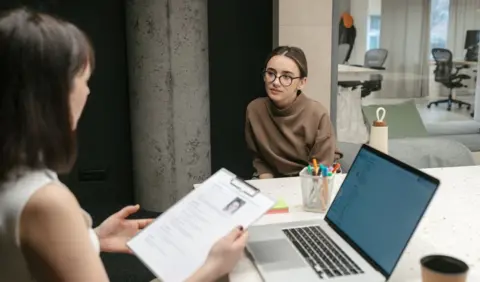 Getty Images
Getty ImagesIf you've never written a CV before, there are countless examples online demonstrating how to format them, as well as templates.
Include your contact details, then list your work experience, if you have any, followed by your education and any volunteering or extra-curriculars. Matt Burney recommends keeping it to one page. "Don't pad it out just for the sake of it," he says.
"Make it easy for them to find your best skills and achievements without having to wade through large blocks of waffly text," Chris Eccles says.
Show some personality but keep the appearance simple. Go for a size 11 or 12 font and "stay away from highly-designed PDFs", which CV-scanning software may struggle to read, Lauren Mistry recommends.
And make the document easy for the employer to find by saving it with an appropriate title, which includes your name, she adds.
Don't waffle in your cover letter
Some jobs also require a cover letter. This should summarise why you're interested in the role and why you're suitable for it.
"It's very easy to waffle," Matt Burney says, but people should keep it "short and specific" instead.
Cover letters a bit like exams with marking criteria, according to Chris Eccles. Study the job advert carefully to see which skills and experience the employer is looking for - and make sure you include this information, he says.
You should address the letter to the person recruiting, if you can find their name on the job listing or company website, Matt Burney says. Otherwise, open with "Dear Hiring Manager", and end with "Sincerely" or "Best", he recommends.
Use AI carefully
Some people use generative AI to craft CVs and cover letters. Attitudes towards that vary between companies, Lauren Mistry says - some big companies scan CVs for AI and automatically reject candidates who've used it. But others don't mind.
Sam Westwood, people experience director at KFC UK and Ireland, says AI is a "really good starting point" for writing a CV or cover letter, and that recruiters at his company "actively embrace" the technology.
Careers experts recommend that if you do opt to use AI, you should check for accuracy and make sure you refine results to show your personality.
Don't worry about your grades
Don't stress too much about your GCSE and A-Level grades when you're applying for a summer job. For part-time roles in retail and hospitality, "maths and English GCSEs shouldn't be a barrier", though the importance of exam results varies by employer, Lauren Mistry says.
Most employers just want to know that an applicant has good numeracy and literacy skills, which they can demonstrate through their CV, emails and job interview, she says.
You can never be too prepared for an interview
Matt Burney advises people ask friends or family to conduct a mock interview with them or get an AI platform to generate some questions, and think of specific examples for your answers. Chris Eccles recommends structuring your answers using the STAR answer method - situation, task, action, result.
Research both the role and the company as much as possible too. If you can, visit the place you're applying to before your interview - cafe owner Jane says the first question she always asks candidates is whether they've been there before.
Present well at the interview
 Getty Images
Getty ImagesIt can be hard to know what to wear for an interview because dress codes vary so much by company. Lauren Mistry advises against wearing trainers, and recommends keeping your shoulders covered and avoiding blue jeans. If you're unsure what's appropriate, ask the company how you should dress, she says.
Careers experts say interviews are a two-way process. It's not just an opportunity for an employer to find out about you, it's also an opportunity for the candidate to learn more about the role and the company. Asking questions shows your interest in the role too.
You can ask about training, the company culture, and what a typical day in the job looks like. You can also ask about the next steps in the application process and when you're likely to hear about the outcome.
And don't just save your own questions until the end - asking them throughout the interview shows curiosity, Lauren Mistry advises.
Make sure you're polite when you're speaking to other staff at the company. Managers often ask other workers, like receptionists, what they thought of the candidates, she says.
Matt Burney recommends sending a short, polite follow-up email after your interview and says this will help set you apart from other candidates.




